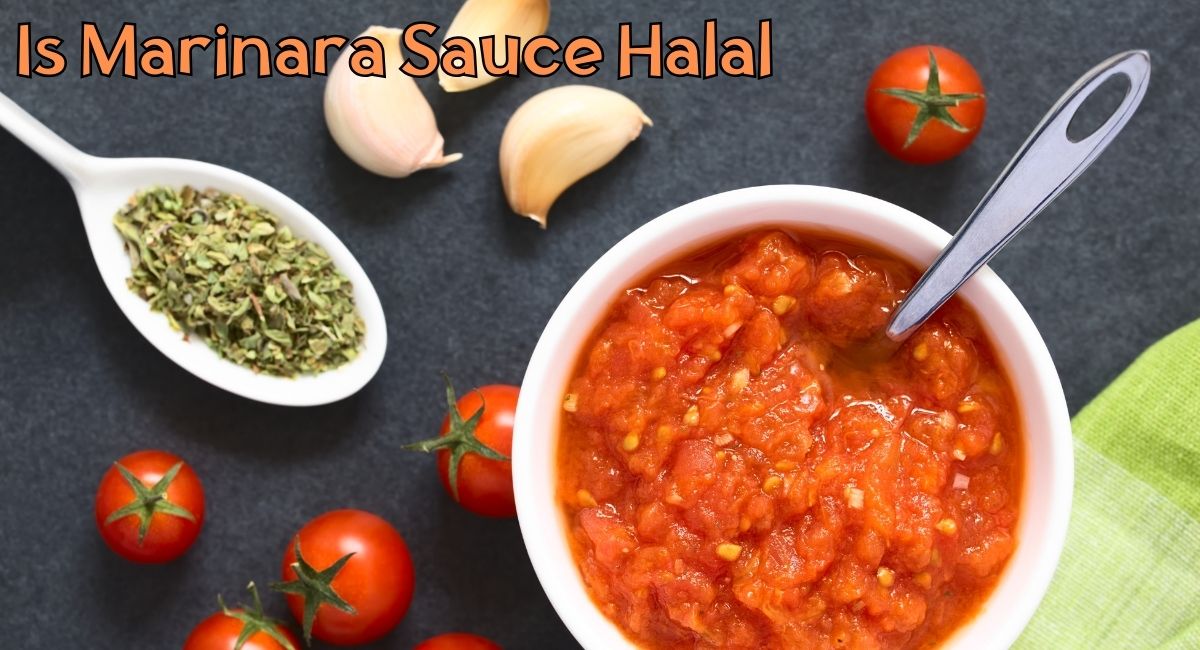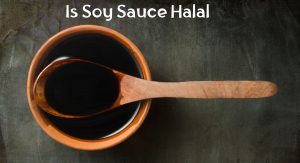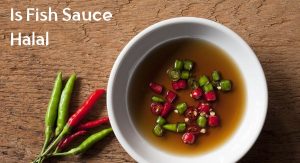Marinara sauce, a beloved classic in Italian cuisine, has found its way into kitchens and restaurants worldwide. Its rich tomato flavor and versatility make it a popular choice for various dishes, from pasta to pizza.
However, for individuals who adhere to a Halal diet, there may be concerns about the ingredients and preparation of marinara sauce.
In this article, we will explore the key considerations surrounding the Halal status of marinara sauce, deciphering the ingredients, preparation methods, and potential pitfalls that Halal-conscious consumers should be aware of when enjoying this delectable sauce.
What is Marinara Sauce
Marinara sauce is a classic Italian tomato sauce known for its simplicity and rich tomato flavor. It is a staple in Italian cuisine and has become popular worldwide. The history of marinara sauce is rooted in Southern Italy, particularly Naples, where it was first created in the late 16th century.
The word “marinara” is derived from the Italian word “marinaro,” which means “mariner” or “sailor.” It is said that Neapolitan sailors, upon returning from sea voyages, created this sauce using readily available ingredients like tomatoes, garlic, olive oil, and herbs.
Over time, it evolved into the beloved sauce we know today. Marinara sauce gained popularity in the United States through Italian immigrants, becoming a fundamental component of dishes like spaghetti and pizza. Its versatile nature makes it a culinary favorite, used as a pasta sauce, pizza topping, dipping sauce, and much more.
Is Marinara Sauce Halal
With the increasing global popularity of Italian dishes, many people from different cultures and religions, including Muslims, are keen to know whether marinara sauce is halal or permissible to consume according to Islamic dietary laws. Let’s delve into the ingredients and preparation of marinara sauce to determine its halal status.
Basic Ingredients of Marinara Sauce
The traditional ingredients of marinara sauce are:
- Tomatoes
- Garlic
- Onions
- Olive oil
- Herbs (like basil, oregano, and parsley)
None of these ingredients are inherently haram (forbidden) in Islam. Therefore, based on the basic ingredients, marinara sauce can be considered halal.
Additives and Preservatives
When purchasing commercially produced marinara sauce, it’s essential to check the label for any additives or preservatives. Some sauces might contain wine or other alcoholic ingredients for flavor, which would render the sauce non-halal. Always read the ingredients list to ensure there are no haram substances.
Cross-Contamination Concerns
For strict observers of halal dietary laws, the environment where the sauce is produced can also be a concern. If the marinara sauce is produced in a facility that also processes non-halal items, like pork or non-halal meat, there’s a risk of cross-contamination. It’s advisable to look for marinara sauces that are certified halal or produced in a halal-compliant facility.
Homemade Marinara Sauce
One of the best ways to ensure your marinara sauce is halal is to make it at home. This way, you have complete control over the ingredients and the preparation process. Homemade marinara sauce is not only halal but also fresh, flavorful, and free from preservatives.
Halal Certifications
To cater to the growing Muslim population worldwide, many food manufacturers are seeking halal certification for their products. If you come across a jar of marinara sauce with a halal certification label, it indicates that the product meets the requirements of Islamic dietary laws.
Here’s a list of halal Marinara sauces according to Halalharam.org:
| Brand | Product Name | Status |
|---|---|---|
| San Benito | Marinara Sauce | Halal |
| Ragu | Mealtime Marinara | Halal |
| Heinz | Marinara Sauce with Olive Oil | Halal |
| Furmanos | Deluxe Marinara Sauce | Halal |
| Conte | Marinara Sauce | Halal |
| Buttoni | Marinara | Halal |
| Francesco Rinaldi | Marinara Pasta Sauce | Halal |
| La San Marzano Di A. Romano | Marinara Sauce | Halal |
| Rao’s Homemade | Marinara Sauce | Halal |
| Botticelli | Marinara Premium Pasta Sauce | Halal |
| Primal Kitchen | Roasted Garlic Marinara Sauce | Halal |
| Pastene | The Chateau Restaurant Marinara Sauce | Halal |
| Bertolli | Organic Marinara | Halal |
| Trader Giatto’s | Organic Tomato Basil Marinara Sauce | Halal |
| Pete’s | Premium Pasta Sauce Marinara | Halal |
| Cucina Antica | Garlic Marinara | Halal |
| Isola | All Natural Pasta Sauce Marinara | Halal |
| Ursini | Marinara | Halal |
| Organico Bello | Organic Marinara | Halal |
| The Farm Woodbury, CT | Honestly Heirloom Marinara Sauce | Halal |
| Rao’s Homemade | Sensitive Marinara | Halal |
In its basic form, marinara sauce is halal. However, when purchasing it from stores, it’s crucial to be vigilant about reading labels and understanding the ingredients. For those who want to be entirely sure of what they’re consuming, preparing marinara sauce at home or buying products with a halal certification are the best options. As with any food product, when in doubt, it’s always best to consult with knowledgeable religious scholars or trusted halal certification bodies.
Is Rao’s Homemade Marinara Sauce Halal
While Rao’s Homemade Marinara Sauce is not officially halal-certified, there are compelling reasons to consider it permissible based on its ingredients.
For a product to be considered halal, it should not contain any ingredients that are haram or forbidden in Islamic dietary laws. This includes, but is not limited to, pork, its by-products, and any form of intoxicants. Moreover, if a product contains meat, the animal must be slaughtered in the name of God and in accordance with Islamic rites.
Rao’s Homemade Marinara Sauce stands out because it is a vegetarian product. Vegetarian products, by definition, do not contain meat or meat by-products. Therefore, they inherently avoid a large portion of potential haram ingredients. However, being vegetarian doesn’t automatically make a product halal. It’s essential to ensure that the vegetarian product doesn’t contain other haram ingredients, like alcohol or certain animal-derived additives.
A closer look at the ingredients of Rao’s Homemade Marinara Sauce reveals:
- Italian Whole Peeled Tomatoes
- Olive Oil
- Onions
- Salt
- Garlic
- Basil
- Black Pepper
- Oregano
All the ingredients listed are plant-based, and none of them are intrinsically haram.
Therefore, while Rao’s Homemade Marinara Sauce is not officially halal-certified, its vegetarian nature and the absence of any haram ingredients make a compelling case for its permissibility in a halal diet. As always, it’s crucial for consumers to conduct their own research and consult with knowledgeable religious authorities or scholars if they have doubts or concerns about the halal status of any product.
Types of Marinara Sauce
While traditional marinara sauce typically consists of tomatoes, garlic, olive oil, and herbs, there are various variations and types of marinara sauce that can be created by adding or modifying ingredients. Here are some common types of marinara sauce:
- Classic Marinara Sauce: This is the basic and traditional version made with tomatoes, garlic, olive oil, basil, oregano, salt, and pepper. It’s simple and delicious, often used as a pasta sauce or pizza sauce.
- Spicy Marinara Sauce: To add some heat to your sauce, you can incorporate ingredients like red pepper flakes, chili powder, or even hot sauce. Spicy marinara sauce is excellent for those who enjoy a bit of a kick in their dishes.
- Seafood Marinara Sauce: This variation includes seafood such as shrimp, clams, mussels, or squid, which are cooked in the marinara sauce. It’s a flavorful option for seafood lovers and can be served over pasta or rice.
- Mushroom Marinara Sauce: Sautéed mushrooms are added to the basic marinara sauce to create a rich, earthy flavor. This version works well with both pasta and meat dishes.
- Meat Marinara Sauce: Ground beef, pork, or a combination of meats can be browned and added to the sauce to create a hearty meat marinara sauce. It’s often used in dishes like spaghetti and meatballs or lasagna.
- Roasted Red Pepper Marinara: Roasted red peppers are blended into the sauce to give it a slightly sweet and smoky flavor. This variation adds depth to the sauce and pairs nicely with a variety of dishes.
- Creamy Marinara Sauce: Heavy cream, half-and-half, or milk is added to the sauce to create a creamy and velvety texture. This type of marinara sauce is commonly used in dishes like penne alla vodka.
- Vegan or Vegetarian Marinara Sauce: To make a vegan or vegetarian version, simply omit any animal products and focus on using vegetables, herbs, and spices. You can also incorporate ingredients like tofu or plant-based meat substitutes.
- White Marinara Sauce: This variation omits the red tomatoes and instead uses white ingredients like cream, butter, garlic, and Parmesan cheese. It results in a creamy and cheesy sauce that’s delicious on pasta.
- Pesto Marinara Sauce: Pesto sauce is mixed with marinara sauce to create a vibrant and herbaceous version. It’s excellent for adding a burst of flavor to pasta dishes.
These are just a few examples of the many types of marinara sauce you can create by adjusting the ingredients and flavors to suit your preferences or the specific dish you’re preparing. Marinara sauce is highly adaptable and can be customized to enhance a wide range of culinary creations.
How to Make Marinara Sauce From Scratch
Making marinara sauce from scratch is relatively simple and requires just a few basic ingredients. Here’s a basic recipe for homemade marinara sauce:
Ingredients:
- 2 tablespoons olive oil
- 1 small onion, finely chopped
- 2-3 cloves garlic, minced
- 1 (28-ounce) can of crushed tomatoes or tomato puree
- 1 (14-ounce) can of diced tomatoes (optional for added texture)
- 1 teaspoon dried basil
- 1 teaspoon dried oregano
- 1/2 teaspoon salt, or to taste
- 1/4 teaspoon black pepper, or to taste
- 1-2 teaspoons sugar (optional, to balance the acidity)
- 1-2 tablespoons fresh basil leaves, chopped (optional, for added freshness)
- Crushed red pepper flakes (optional, for a bit of heat)
Instructions:
- Heat the Olive Oil: In a large saucepan or skillet, heat the olive oil over medium heat.
- Sauté Onions and Garlic: Add the chopped onions and minced garlic to the hot oil. Sauté them for about 2-3 minutes until they become fragrant and translucent. Be careful not to let them brown.
- Add Tomatoes: Pour in the crushed tomatoes (and diced tomatoes if using) into the saucepan. Stir well to combine with the sautéed onions and garlic.
- Season: Add the dried basil, dried oregano, salt, black pepper, and sugar (if using) to the sauce. Stir to incorporate the seasonings evenly. The sugar is added to balance the acidity of the tomatoes; adjust the amount to your taste.
- Simmer: Reduce the heat to low and let the sauce simmer uncovered for about 20-30 minutes, stirring occasionally. This allows the flavors to meld and the sauce to thicken. If you prefer a thinner sauce, you can simmer for a shorter time.
- Adjust Seasoning: Taste the sauce and adjust the salt, sugar, or spices if necessary to suit your preferences. If you like a bit of heat, you can add some crushed red pepper flakes at this point.
- Finish with Fresh Basil (Optional): If you have fresh basil leaves, you can stir in some chopped fresh basil just before serving for added freshness and aroma.
- Serve: Your homemade marinara sauce is ready to use! You can serve it immediately over your choice of pasta or use it in other dishes as mentioned in the previous response.
- Store: If you have leftover sauce, you can store it in an airtight container in the refrigerator for up to a week or freeze it for longer-term storage.
Feel free to customize your marinara sauce by adding other ingredients like red wine, grated Parmesan cheese, or a pinch of fennel seeds for added depth of flavor. Homemade marinara sauce is incredibly versatile and can be tailored to your taste preferences.
Explore these detailed guides to gain a thorough understanding of the halal suitability of various Italian sauces. Make informed choices and savor your favorite flavors with confidence.
Is Pesto Halal or Haram: Dive into the world of Italian cuisine and discover whether pesto sauce aligns with halal dietary guidelines. Learn about its ingredients and preparation to make informed choices.
Is Alfredo Sauce Halal or Haram: Uncover the secrets behind Alfredo sauce and its halal status. Explore the components that go into this creamy delight and find out if it’s compatible with your dietary preferences.
Is Alfredo Sauce Haram: Spice up your knowledge with insights on arrabbiata sauce’s halal compatibility. Explore the fiery ingredients that give this Italian sauce its kick, and make your dining decisions with confidence.
Frequently Asked Questions
1. Does marinara sauce have meat?
Traditionally, marinara sauce does not contain meat. Marinara is a simple tomato-based sauce originating from Italy, made primarily from tomatoes, garlic, herbs, and onions. The basic ingredients for a classic marinara sauce include tomatoes (fresh or canned), garlic, olive oil, and seasonings like basil, oregano, and sometimes red pepper flakes. However, in various culinary adaptations, some people might add meat or use marinara as a base for meat sauces. So, always check the ingredient list if you’re unsure or if dietary restrictions are a concern.
2. Is marinara usually vegan?
Marinara sauce is typically vegan, as the basic ingredients include tomatoes, garlic, olive oil, and herbs like basil and oregano, which are all plant-based. However, some recipes or commercial varieties of marinara sauce may contain additional ingredients like cheese or meat, so it’s essential to check the label or inquire about specific products to ensure they are vegan.
3. What makes marinara marinara?
What distinguishes marinara sauce is its simplicity and core ingredients. Marinara sauce is a tomato-based sauce made with ripe tomatoes, garlic, olive oil, and typically seasoned with basil and oregano. It’s known for its fresh and bright tomato flavor, and it’s characterized by the absence of heavy ingredients like cream or meat, making it a light and versatile sauce.
4. What type of sauce is marinara?
Marinara sauce is a type of tomato sauce. It’s a classic Italian tomato sauce that serves as a base for various Italian dishes, such as pasta, pizza, and meatless dishes. It’s prized for its straightforward and robust tomato taste and is often used as a starting point for more complex pasta sauces.
5. Does marinara have fish?
Traditional marinara sauce does not contain fish as an ingredient. However, be cautious when ordering marinara dishes at restaurants, as some establishments may use fish or seafood in their versions of marinara sauce. Always inquire about ingredients if you have dietary restrictions or allergies.








